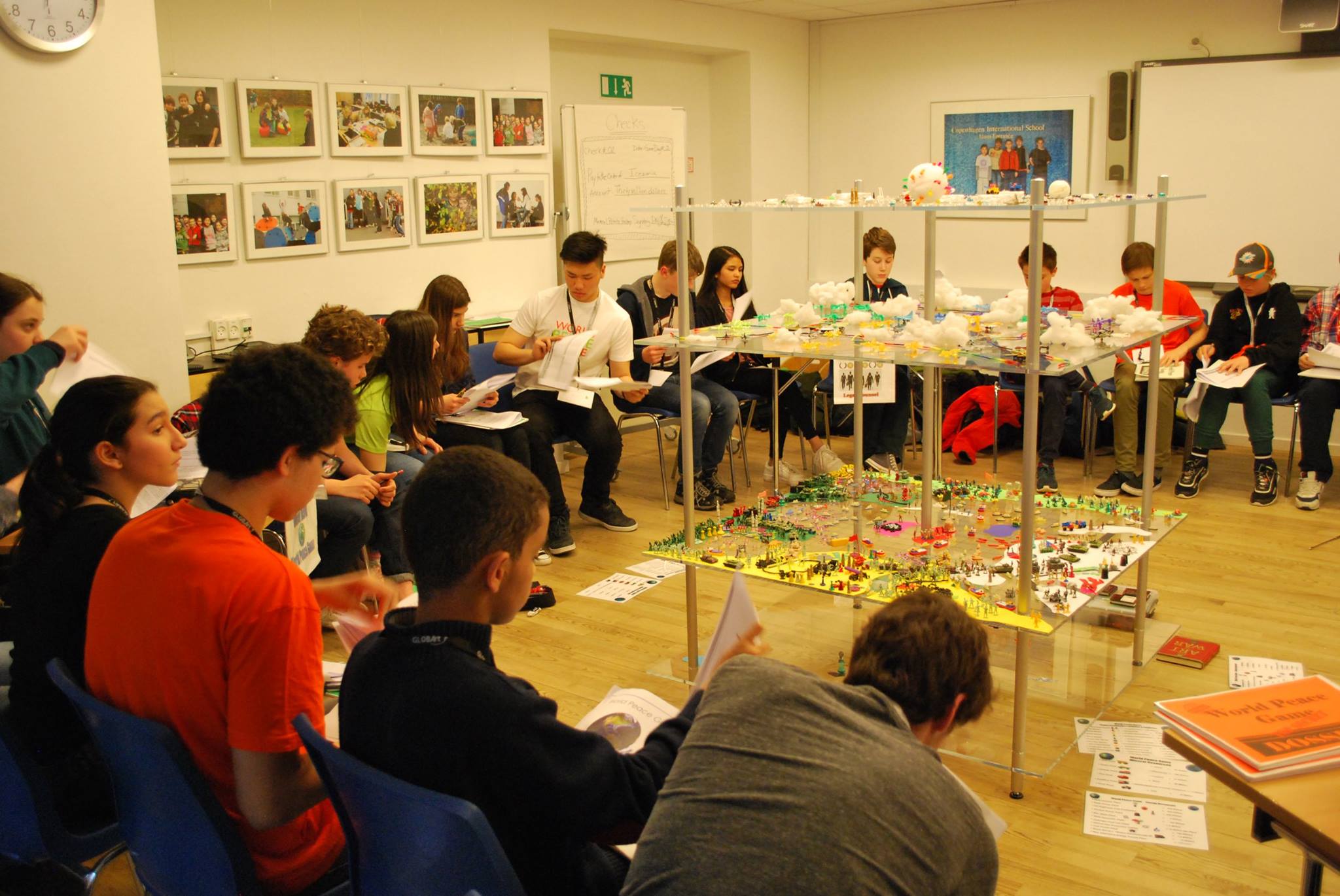Twenty-five students from Copenhagen International School had a go at ruling the world during the last week of April and managed to successfully solve 50 international crises. What an achievement!
The children, aged 9-10, took part in the popular World Peace Game, a hands-on political simulation in which they tried out the roles of prime minister, secretary of defence, the secretary of the United Nations, and the president of the World Bank.
Ambassadorial visit
Their goal was to solve the world’s most pressing problems while maintaining overall peace.
Even the US ambassador to Denmark, Rufus Gifford, stopped by to learn from the kids.
The World Peace Game is a political science simulation game invented by the American teacher John Hunter, which he designed especially for 4th grade students.
It gives boys and girls the opportunity to practise their critical and creative problem-solving skills, leadership responsibilities, decision making and negotiation skills.















